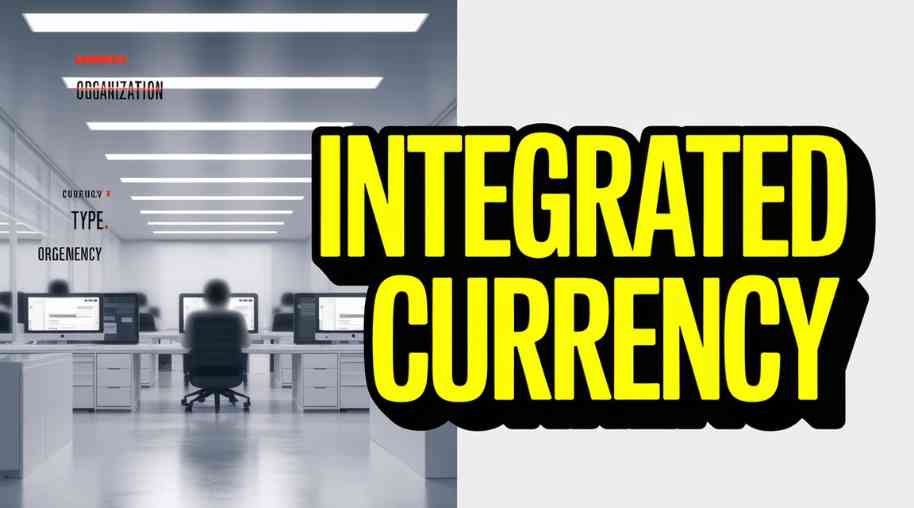ICCOMS Full Form-Integrated Computerised Currency
by Shashi Gaherwar
0 2100
Integrated Computerised Currency: A Modern Approach to Digital Transactions
With the rapid advancement of **financial technology (fintech)** and the increasing digitization of global economies, the concept of **Integrated Computerised Currency (ICC)** has emerged as a transformative financial model. This digital form of currency leverages **computerized networks**, **blockchain technology**, and **secure transaction protocols** to facilitate seamless and transparent financial transactions. This article explores the definition, advantages, implementation, security measures, and future prospects of Integrated Computerised Currency in the digital age.

Understanding Integrated Computerised Currency
**Integrated Computerised Currency (ICC)** refers to a digital monetary system where transactions, storage, and circulation of currency are managed through **computerized networks**. Unlike traditional paper-based or physical currencies, ICC operates in a completely **digital environment**, ensuring secure and efficient financial operations. This system can be implemented by **governments**, **central banks**, or **private financial institutions**, enabling faster and more transparent financial transactions. Notable forms of ICC include:
- Central Bank Digital Currencies (CBDCs)
- Cryptocurrencies (e.g., Bitcoin, Ethereum)
- Stablecoins (e.g., USDT, USDC)
- Bank-Issued Digital Money
Key Features of Integrated Computerised Currency
ICC is characterized by several innovative features:
- Digitization and Automation: Transactions occur in **real-time**, reducing the need for intermediaries such as banks or clearing houses.
- Security and Encryption: Uses advanced **cryptographic techniques** to ensure secure and tamper-proof transactions.
- Transparency and Accountability: Enables **real-time monitoring** and tracking of financial transactions.
- Interoperability: Can be integrated with **existing banking systems**, **mobile payment platforms**, and **global financial networks**.
- Decentralization (in some models): Certain ICC models, such as **blockchain-based currencies**, operate without a central authority, increasing **financial autonomy**.
Pro Tip: ICC’s interoperability makes it adaptable to various financial ecosystems, enhancing its global applicability.
Advantages of Integrated Computerised Currency
ICC offers numerous benefits that are reshaping financial systems:
- Enhanced Financial Inclusion: Digital currency provides financial services to the **unbanked population**, especially in remote areas.
- Reduced Transaction Costs: Eliminates the need for **paper money**, **physical banking infrastructure**, and third-party intermediaries.
- Improved Transaction Speed: **Real-time processing** enables instant **cross-border payments**.
- Greater Transparency and Fraud Prevention: **Digital ledgers** help reduce **corruption**, **money laundering**, and **tax evasion**.
- Environmental Sustainability: Reduces the environmental impact associated with **printing**, **transporting**, and **disposing** of physical currency.
Security Measures in Integrated Computerised Currency
Ensuring the security of ICC is critical due to the risks of **cyber-attacks**, **hacking**, and **financial fraud**. Key security measures include:
- Blockchain Technology: Provides a **decentralized** and **tamper-resistant** transaction ledger.
- Multi-Factor Authentication (MFA): Enhances **user verification** processes.
- End-to-End Encryption: Secures transaction data from **unauthorized access**.
- Smart Contracts: Automate and enforce **financial agreements** without intermediaries.
- Regulatory Compliance: Government oversight ensures adherence to **financial regulations** and **anti-money laundering (AML)** protocols.
Implementation Challenges of ICC
Despite its advantages, ICC faces several **challenges**:
- Cybersecurity Threats: Digital currencies are prone to **hacking**, **fraud**, and **unauthorized access**.
- Regulatory Uncertainty: Many countries lack **clear legal frameworks** for digital currency adoption.
- Public Trust and Adoption: Some populations may resist transitioning from **physical cash** to digital alternatives.
- Technical Infrastructure: **Reliable internet connectivity** and **digital payment systems** are essential for ICC adoption.
- Privacy Concerns: Digital transactions can raise concerns over **surveillance** and **data privacy**.
The Future of Integrated Computerised Currency
The future of ICC is promising, with several advancements shaping its trajectory:
- Central Bank Digital Currencies (CBDCs): Countries like **China (Digital Yuan)** and the **European Union (Digital Euro)** are exploring CBDC implementation.
- AI and Machine Learning Integration: Enhancing **fraud detection** and **transaction security** through predictive analytics.
- Decentralized Finance (DeFi) Growth: The rise of **DeFi platforms** is revolutionizing traditional banking systems.
- Cross-Border Payment Enhancements: Digital currencies will streamline **global remittances** and **trade settlements**.
- Smart Cities and Digital Economies: ICC will play a key role in shaping **fully digitalized financial ecosystems** in smart cities.
**Integrated Computerised Currency** is revolutionizing the financial landscape by offering a **secure**, **transparent**, and **efficient** alternative to traditional monetary systems. As technology advances, ICC will continue to evolve, influencing **banking**, **commerce**, and **global financial markets**. While challenges remain, **governments**, **businesses**, and **individuals** must embrace this digital transformation to unlock the full potential of modern financial ecosystems.
Further Learning Resources
If you’re passionate about building a successful blogging website, check out this helpful guide at Coding Tag – How to Start a Successful Blog. It offers practical steps and expert tips to kickstart your blogging journey!
For dedicated UPSC exam preparation, we highly recommend visiting www.iasmania.com. It offers well-structured resources, current affairs, and subject-wise notes tailored specifically for aspirants. Start your journey today!

Share:








Comments
Waiting for your comments